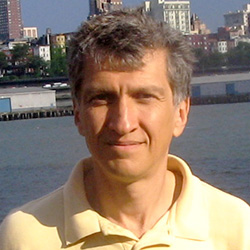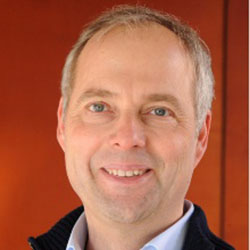Scientific Advisory Board
The Scientific Advisory Board (SAB) is composed of internationally renowned scientists who are based outside of Basel. Members of the Advisory Board cover with their expertise the following research areas of the Department of Physics:
- Cosmology / Particle physics
- Condensed-matter theory / Quantum computing
- Quantum transport and coherence / Spin qubit experiments
- Quantum optics: Atomic physics / Nano-optics / Optomechanics
- Scanning probe microscopy / Nanoscale imaging / Sensing .
The Scientific Advisory Board consists of 5 permanent members, and the term of office of the members is four years, re-election is possible. The Advisory Board organizes itself independently and appoints one of its members as chair.
Every two years, the SAB reviews the performance, evolution and development potential of the Department of Physics and its individual research groups (professorships). The reporting to and feedback by the SAB is provided in a spirit of joint critical reflection and coaching. The SAB reports back to all professors of the department, as well as with the Department leadership, the faculty and university leadership.
Cosmology / Particle physics

Prof. Dr. Giulia Zanderighi
Max Planck Society
Max Planck Institute for Physics
Munich, Germany
Condensed-matter theory / Quantum computing

Prof. Dr. Leonid Glazman
Yale University,
Department of Physics
New Haven, USA
Quantum transport and coherence / Spin qubit experiments

Prof. Dr. Milena Grifoni
University of Regensburg
Institut I - Theoretische Physik
Regensburg, Germany
Quantum optics: Atomic physics / Nano-optics / Optomechanics

Prof. Dr. Jörg Wrachtrup
University of Stuttgart
3rd Physics Institute
Stuttgart, Germany
Scanning probe microscopy / Nanoscale imaging / Sensing

Prof. Dr. Harald Brune
École polytechnique fédérale de Lausanne (EPFL)
Laboratory of Nanostructures at Surfaces
Lausanne, Switzerland
Alternate Board Member 2025:
Cosmology / Particle physics

Prof. Dr. Gilberto Colangelo
University of Berne
Institute for Theoretical Physics
Berne, Switzerland
Alternate Board Member 2023:
Scanning probe microscopy / Nanoscale imaging / Sensing

Prof. Dr. Andreas Heinrich
Ewha Womans University
IBS Center for Quantum Nanoscience
Seoul, South Korea
Quick Links
